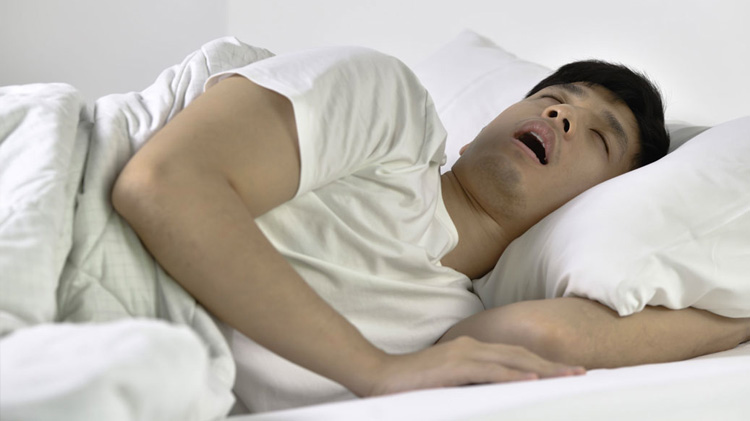Even with healthy sleep habits, many people still don’t get quality sleep. This isn’t surprising, considering that around 40 million Americans have a chronic sleep disorder. One prevalent sleep disorder affecting 31% of the US population is teeth grinding, also known as bruxism.
What many are unaware of is that bruxism is often caused by sleep apnea. This is a sleep disorder that causes the throat muscles to obstruct airways and nasal passages, causing the person to stop breathing for short periods during the night. The National Sleep Foundation estimates that 1 in 4 people with sleep apnea also grind their teeth during sleep, with men being more predominantly affected.

Sleep Apnea and Teeth Grinding in Adults
If you wake frequently during the night experiencing earaches, headaches, stiff jaw muscles or sensitive teeth, it’s likely you’re grinding your teeth. However, there are other signs of bruxism, including shape changes of teeth or worn-down teeth.
Sleep apnea, on the other hand, is a bit harder to detect. However, the following symptoms are likely:
- Loud snoring.
- Daytime sleepiness and lethargy.
- Difficulty staying asleep.
- Waking with a headache, dry mouth or sore throat.
- Shortness of breath or gasping during the night.
- Waking often to use the restroom.
- Concentration, attention and memory difficulties.
- Mood swings.
- Increased irritability.
Sleep Apnea and Teeth Grinding in Children
Children can also suffer from bruxism and sleep apnea. Interestingly, many symptoms experienced by children are similar to ADHD symptoms. These include:
- Learning difficulties.
- Limited attention span.
- Poor school performance.
- Snoring
- Daytime sleepiness.
- Mouth breathing, both asleep and awake.
- Pauses in breathing during the night.
- Bedwetting
Risks of Untreated Sleep Apnea and Bruxism
Sleep apnea, when left untreated, can lead to serious health problems, including:
- Acid reflux.
- Type 2 diabetes.
- Mental health conditions.
- Low immune function.
- Memory loss.
- Increased risk of heart failure or stroke.
Furthermore, bruxism can wear down crowns and fillings over time, as well as break or loosen teeth. Fortunately, there are multiple treatments for sleep apnea and teeth grinding that can improve sleep quality.

Tips for Eliminating Sleep Apnea and Bruxism for Improved Sleep
Adults or children with sleep apnea and bruxism may benefit from the following lifestyle changes:
- Stress management techniques and practices.
- Losing weight and maintaining a healthy weight (obesity increases risk of airway obstruction).
- Yoga to improve respiratory health and oxygenation.
- Limiting alcohol consumption.
- Quitting smoking.
- Sleeping on your side.
- Using a humidifier.
- Maintaining a consistent sleep schedule.
- Avoiding caffeine after 12pm.
- Limit blue light from technology an hour prior to bedtime.
- Avoid eating 2 to 3 hours before bed.
- Exercising daily.
- Practicing relaxation before bed (deep breathing, reading, meditating).
If these lifestyle adjustments don’t improve your quality of sleep, other common treatments include:
- Oral devices, such as mouthguards.
- Medication
- Surgery
Getting fitted for a mouthguard can protect the teeth and help with jaw alignment in those who grind their teeth. Furthermore, according to the American Academy of Dental Sleep Medicine, custom-fitted devices are an effective treatment for both snoring and sleep apnea.
It’s important to work closely with a dentist for the symptoms of sleep apnea and teeth grinding, as they can cause other health issues, including problems with your teeth and gums. Contact Comfort Care Family Dental for more information about treating these conditions.


